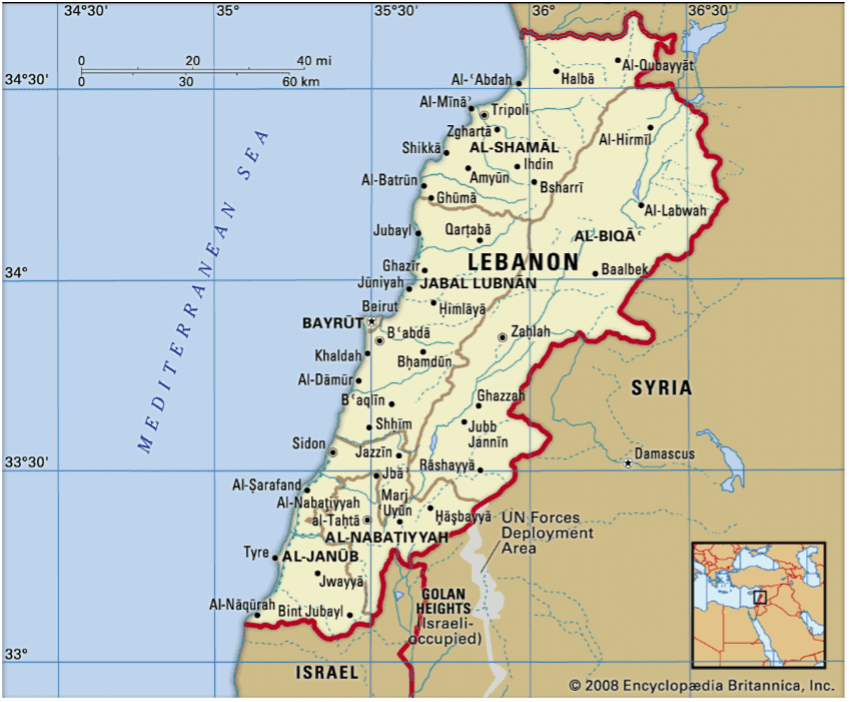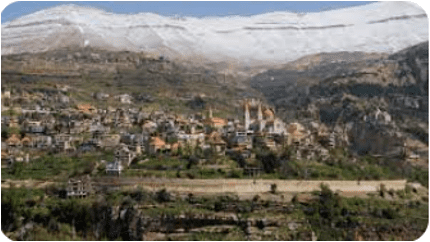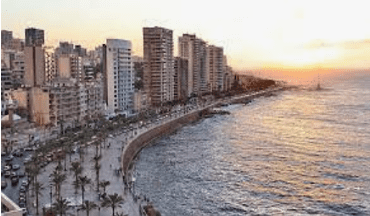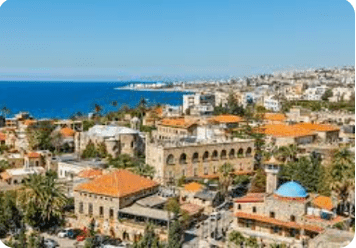PRAYERS FOR Lebanon
- Lebanon reels from decade after decade of tragic communal wars, foreign interventions, and internal crises. Wars and conflicts have displaced over 80% of the population. Massive grassroots protests in 2019-2021 revealed Lebanon’s frustration with the failure of successive governments to bring solutions to ongoing issues of economic stagnation, unemployment, and corruption. The impact of Covid, the massive explosion in Beirut in 2020, and the ongoing economic and political crisis intensify Lebanon’s woes further. Meanwhile, around two million refugees seek shelter in Lebanon – from Syria, Palestine, Iraq, and beyond. These refugees are often used as scapegoats for Lebanon’s many woes. But growing numbers of them are also encountering Jesus for the first time. Prayfor this biblical land to know the loving mercy and rich blessings of our loving Father.
- The entire nation has been deeply traumatized, especially Christians. Many despair of any future in Lebanon and have emigrated an-masse for economic and security reasons. The Christian percentage has dropped from 62% in 1970 to less than 30% today. Praythat many may come to personal faith in and deep commitment to the Lord Jesus. Though most Christians would leave if they had the chance, pray for many to choose to stay and remain salt and light in Lebanon.
- The wide variety of Orthodox and Catholic Churches have a long history of struggling to survive. In the midst of traditionalism, deadness and politicization, there are significant renewal movements, notably in the Maronite and Eastern Orthodox Churches. Church attendance remains high drawn by ‘rituals, sacraments and rites’. Pray that the REAL GOSPEL (1Co 15:1-4[i]) is witnessed and preached by God-sent Born-again Saints.
- The Evangelical Church has struggled to find acceptance, and the many small denominations communicate a message of fragmentation and divisiveness. Conversions have barely replaced losses through emigration. Pray for the ministry of Evangelical groups – with a number of new converts from non-Christian backgrounds – that they might grow in number and missions vision. Pray for new growth among mainline Protestants as well. Pray for further fellowship and cooperation to develop among evangelicals. Churches are increasingly working together in responding to Lebanon’s many crises. Nevertheless, Pray for wisdom (Pr 2:6[ii]; Jas 1:5[iii]) that all these groups understand the concept “it is better divided by truth, than united in error”.
- The Bible Society distributes many Bibles within Lebanon and to surrounding nations. It is growing to meet the increased demand for Bibles and NTs in all communities. The Society has opened some new centres in busy shopping areas. Many in Orthodox and Catholic churches are reading and studying the Scriptures. The Society is one of the few ministries that has good relationships with all confessions.
- Christian schools and orphanages. These are much appreciated, having had a long and fruitful ministry, and have gained in credibility from 1990 onward. Many children from all communities hear the gospel and some come to Christ (LES – Lebanon Evangelical School, Baptists, MECO, and others). Many Lebanese political and societal leaders have attended an evangelical school.
- Young people and students, who often struggle with hopelessness as well as frustration with lack of progress and job opportunities. Many feel as if they have been given up on; many are active for real change in Lebanon. Pray for relevant and effective ministry to young people of all faiths – they are the future of Lebanon. Drop-in centres and camps are particularly effective. Most youth are responsive to genuine Christian love, yet more needs to be done (YFC, Grain du Blé, YWAM, Focus on the Family, IFES, Cru, local churches).
- Christian TV. Television is the primary source of information and entertainment. There are a number of local Christian TV stations. Satellite television channels, including but not limited to SAT-7, have had a deep impact. Programmes are also re-broadcast by the Catholic TV station Télélumière. SAT-7’s main studios for the Middle East are now in Beirut.
- The unreached. Conversion to Christ, although legal, is nonetheless very costly to those from other backgrounds. Despite this, the number of those coming to Jesus is significantly increasing. So pray for:
- The Shi’a Muslims are the fastest growing population and increasingly influential. They live mainly in the south, in the Bekaa Valley and in southern Beirut. The Hezbollah party is supported by Iran. Pray that more might discover the emptiness of a religion without Christ, as ever-growing numbers have done!
- The Sunni are mainly in the northeast, and in the cities of Beirut, Tripoli and Sidon.
- The Druze and their well-organized, close-knit community. Their heartland is the mountain area east of Beirut. They have a secretive religion that came out of Islam; only 20% are fully initiated into it. A multi-agency partnership is seeing several hundred come to Christ. Most Druze believers remain incognito, but others form a growing church or take their new faith back to Syria with them.
- The ‘Palestinians’. Their story is full of tragedy, poverty and disenfranchisement. No full peace or harmony is possible without a lasting solution to their situation, especially for those in refugee camps. There are Christians among them, some evangelical, but the majority are Muslim and unreached. Differences among radical Islamist minority groups have brought suffering onto the majority, such as the conflict in the Nahr al-Bared refugee camp.
- The poor and disadvantaged. The majority of the very poor are Muslim. The blind, deaf and disabled are often neglected by society in general, but doors are open for Christians to minister to them. Pray for more Christians and agencies to demonstrate care and love to these needy people.
[i] 1 Corinthians 15:1-4 Moreover, brethren, I declare unto you the gospel which I preached unto you, which also ye have received, and wherein ye stand; 2By which also ye are saved, if ye keep in memory what I preached unto you, unless ye have believed in vain. 3For I delivered unto you first of all that which I also received, how that Christ died for our sins according to the scriptures; 4And that he was buried, and that he rose again the third day according to the scriptures:
[ii] Proverbs 2:6 For the LORD giveth wisdom: out of his mouth cometh knowledge and understanding.
[iii] James 1:5 If any of you lack wisdom, let him ask of God, that giveth to all men liberally, and upbraideth not; and it shall be given him.






